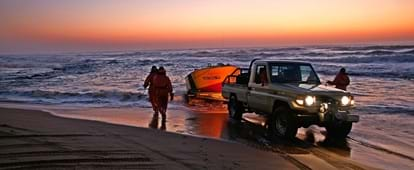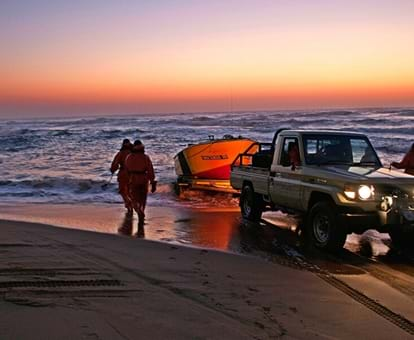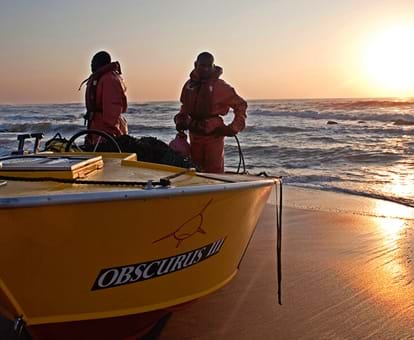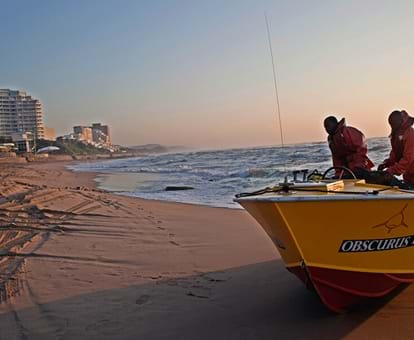By creating an account, I agree to the
Terms of service and Privacy policy
Choose your country and language:
Africa
Americas
Asia Pacific
Europe
TThe KwaZulu-Natal Sharks Board Maritime Centre of Excellence has protected the province’s bathing beaches from shark attacks for over 50 years. The Sharks Board is also involved in vital shark research, and educates the public about sharks and their behaviour.
A visit to the KwaZulu-Natal Sharks Board Maritime Centre of Excellence headquarters in Umhlanga Rocks, north of Durban, is popular among local school learners and interested members of the public.
Here you are enlightened on the work of the Sharks Board via an audio-visual presentation, followed by a shark dissection and discussion that can be viewed from a curved, tiered seating arena.
The venue also features photographs, shark replicas, reconstructed skeletons, sharks’ teeth and mounts of different species. If you’re looking for souvenirs of your visit, the Fathoms curio shop sells branded clothing and shark-themed mementoes.

FFor a more interactive experience, the Board also takes you out at dawn on their tour boats to see first-hand how nets are maintained off Durban’s Golden Mile. The highlight of such a trip is the opportunistic viewing of dolphins, whales and seabirds.
KwaZulu-Natal Sharks Board, Durban
AAchieving a balance between the protection of bathers and minimising impact on the marine environment led to a net reduction programme some years ago. Total coverage of shark-safety gear (nets and/or drumlines) has gradually been reduced from 44km of coverage along the KwaZulu-Natal coastline to 23km, without adversely compromising bather safety.
Today the Sharks Board provides a shark-protection service at 37 beaches along the KwaZulu-Natal coast, between Richards Bay in the north and Port Edward in the south. Operations staff is accommodated at 11 base stations along the KwaZulu-Natal coast, which enables surf launches at first light. Nets and shark-safety gear are checked for specimens caught overnight, and damaged nets are repaired or replaced.
The last attack at a protected beach took place in 1999, a vindication of the success of the Sharks Board in reducing shark attacks on bathers and surfers.
Related articles




